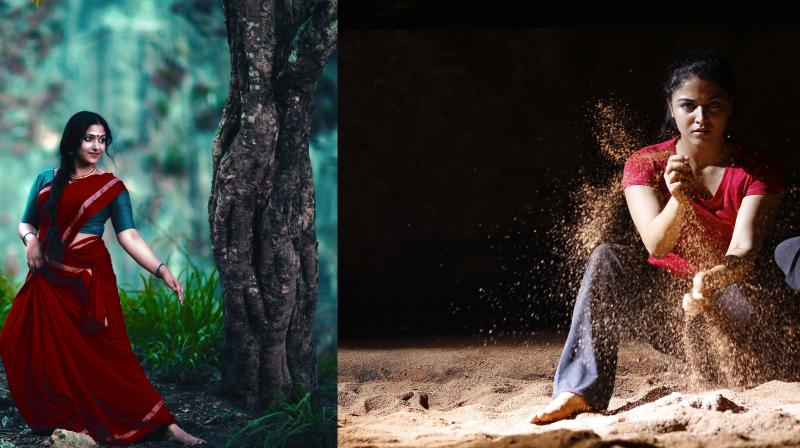Heroine, hero out?
Not really, say filmmakers but agree that scripts with women at the centre now have more takers.

The good looking hero proposes to the beautiful heroine and if you think she would bat her eyelashes, say the customary yes and ride into the sunset with the end credits rolling, you would be completely wrong. In this case, when the hero proposes, the heroine slams the door in his face, yelling that her dream of becoming a wrestler is more important than love. This is a scene from the recent Malayalam hit Godha where the female lead played by Wamiqa Gabbi spurns the affections of Tovino Thomas’ character. This slamming of the door is in a way a metaphor of saying ‘no’ to stereotypical roles that require the female lead to just be an arm candy or be at the receiving end of machismo laden dialogues. The new age female leads have a mind of their own and assert their rights. They revel in their independence and see nothing wrong in playing shades of grey.
Some of the recent Mollywood films have title roles played by female actors and the audience has rooted for them as loudly as they did for the male counterparts. Godha director Basil Joseph’s intention was to make a sports comedy film, not yet attempted in Malayalam. So he zeroed in on Waqima to play the role of the bold wrestler woman Aditi Singh who runs away from Punjab to Kerala to pursue her dream of becoming a wrestler. Romance is not her priority and as Basil explains, “I thought making the film women-centric would add more value to it and make it inspiring for a lot of other women.” He has a personal reason too: “All the women around me, be it my fiancée, my sister or my mother, are all very strong women. My fiancée is an electrical engineer but she gave up that job to follow her dream of working for an NGO. My mother is a teacher while my sister is an engineer and so I have seen all these strong women around me and grown to respect their independence and ideas.”
Basil imparted some of that strength to his female character in Godha. “My female lead is very strong and the male character takes a back seat. She surmounts obstacles and single-mindedly pursues her goal. She is not an underdog and the hero is there to just provide her support. She is an achiever with or without him,” he adds. Basil says that his intention of projecting the female lead was to send across the message that women need to make their own decisions and follow up on them. Another strong female lead who has been applauded is Malini of Ramante Edanthottam played by Anu Sithara. She is caught in a marriage that is collapsing around her and sees divorce as the logical outcome. She goes and starts a dance school. When her husband asks her to come back, she has no hesitation in making her choice clear of her dance school being more important than her spouse. She also develops feelings for another man but would rather pursue her dance school dreams than pursue another romance. A departure from stereotype and conventions.
Director Ranjith Sankar says, “I had been wanting to make this story for a long time and thought the time was right.” Malini is a woman who rediscovers her purpose in life and it is she who drives the story forward. The hero provides the impetus to kick start her dreams. But Ranjith is not comfortable with the tag female centric. He states, “The industry is male driven and will remain so but the audience is willing to accept different subjects and the thrust is on good scripts. Rather than tag a film as woman-centric, male-centric or child-centric, it is good and refreshing scripts that need to be made.” Director Mahesh Narayanan minces no words in saying that the industry is male driven and it is very difficult for a female protagonist film to do well but that did not stop him from portraying a strong female protagonist in his recent debut film Take Off.
It was based on real life incidents and had Parvathy playing the role of a nurse stranded in Libya under the ISIS regime. He explains the difficulties in making a female centric film, “Most people including women do not want to see serious films with female protagonists on screen, especially in a deglam look. Besides that obstacle, the business of cinema also dictates that male-centric scripts have more value, so finding distributors or getting satellite rights is a challenge. Why, even posters featuring cutouts of female leads are not welcome!” He goes on to name some films that have strong female protagonists but have male names in the title. No revolution happens in a day.

